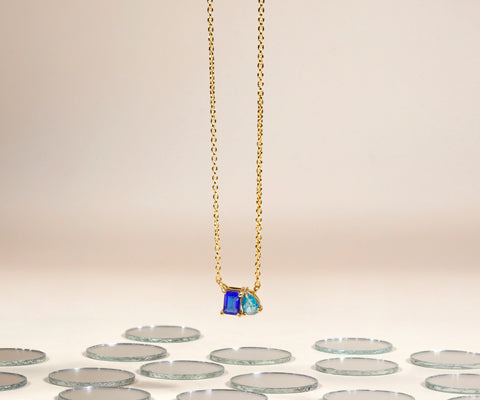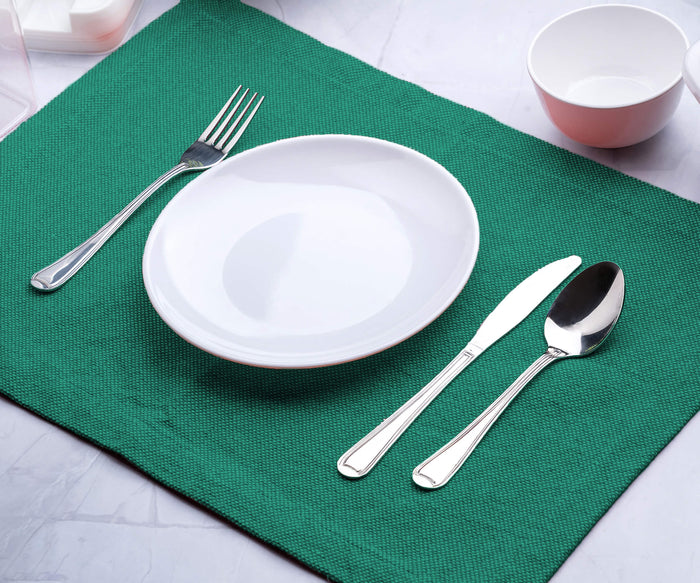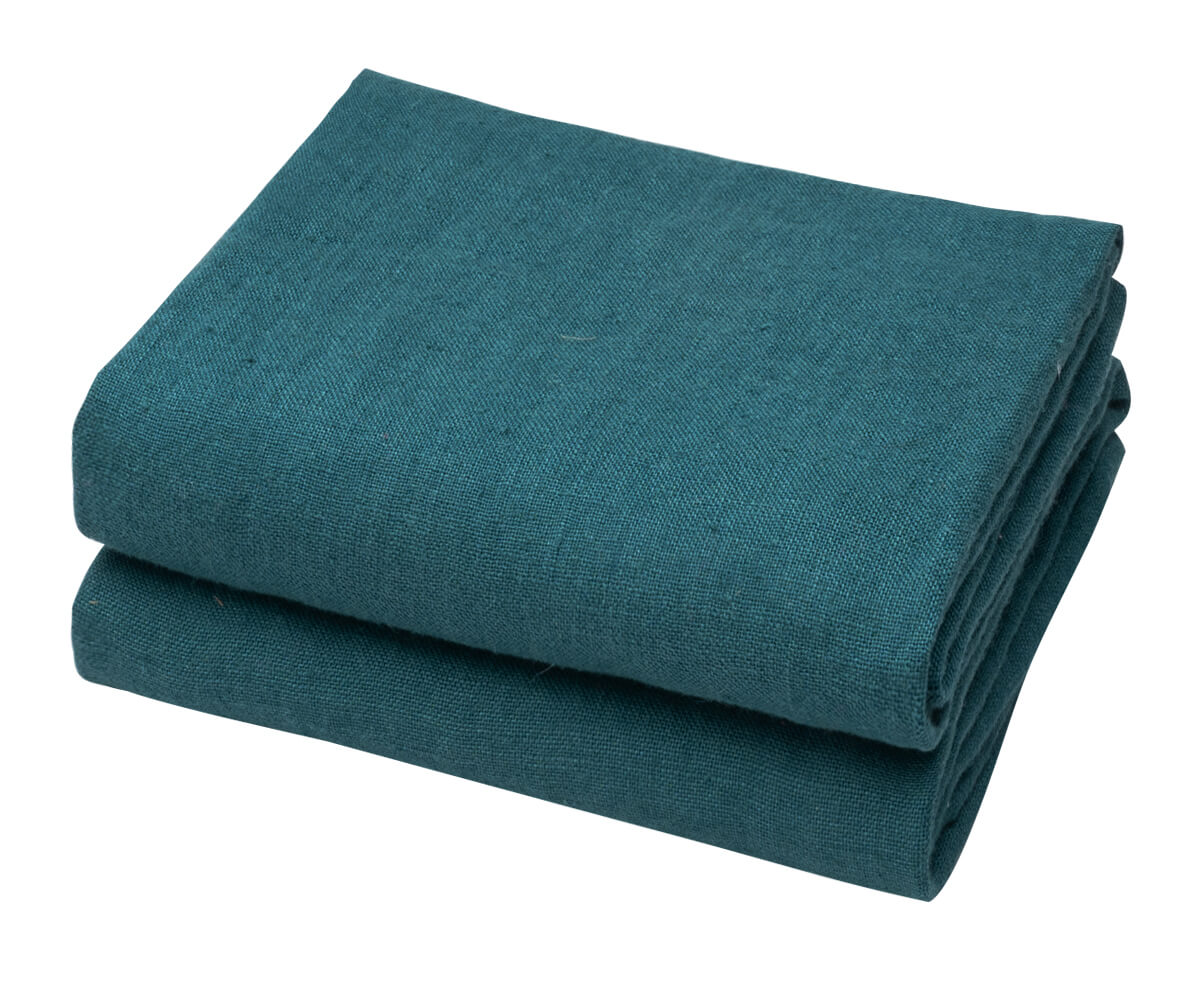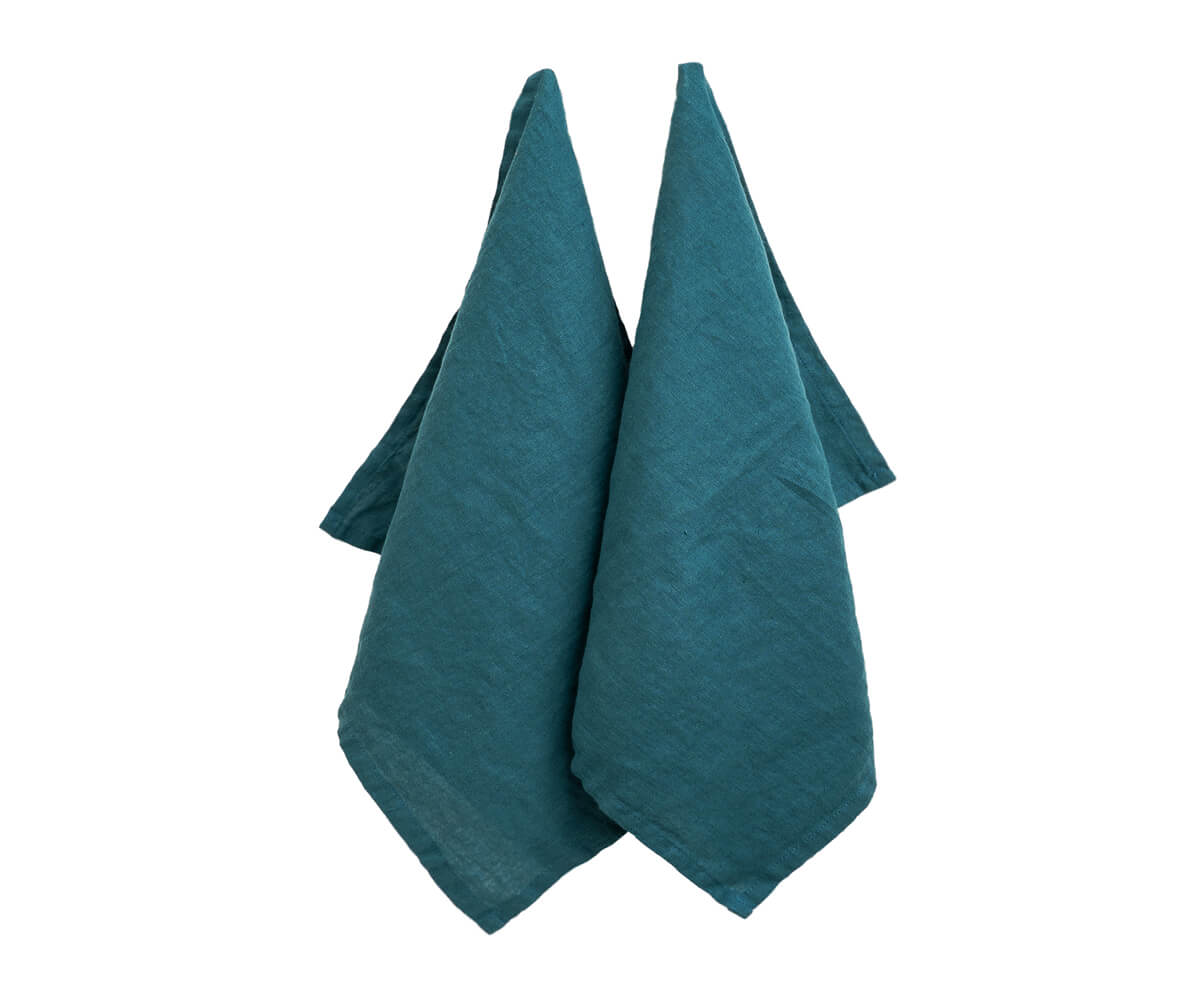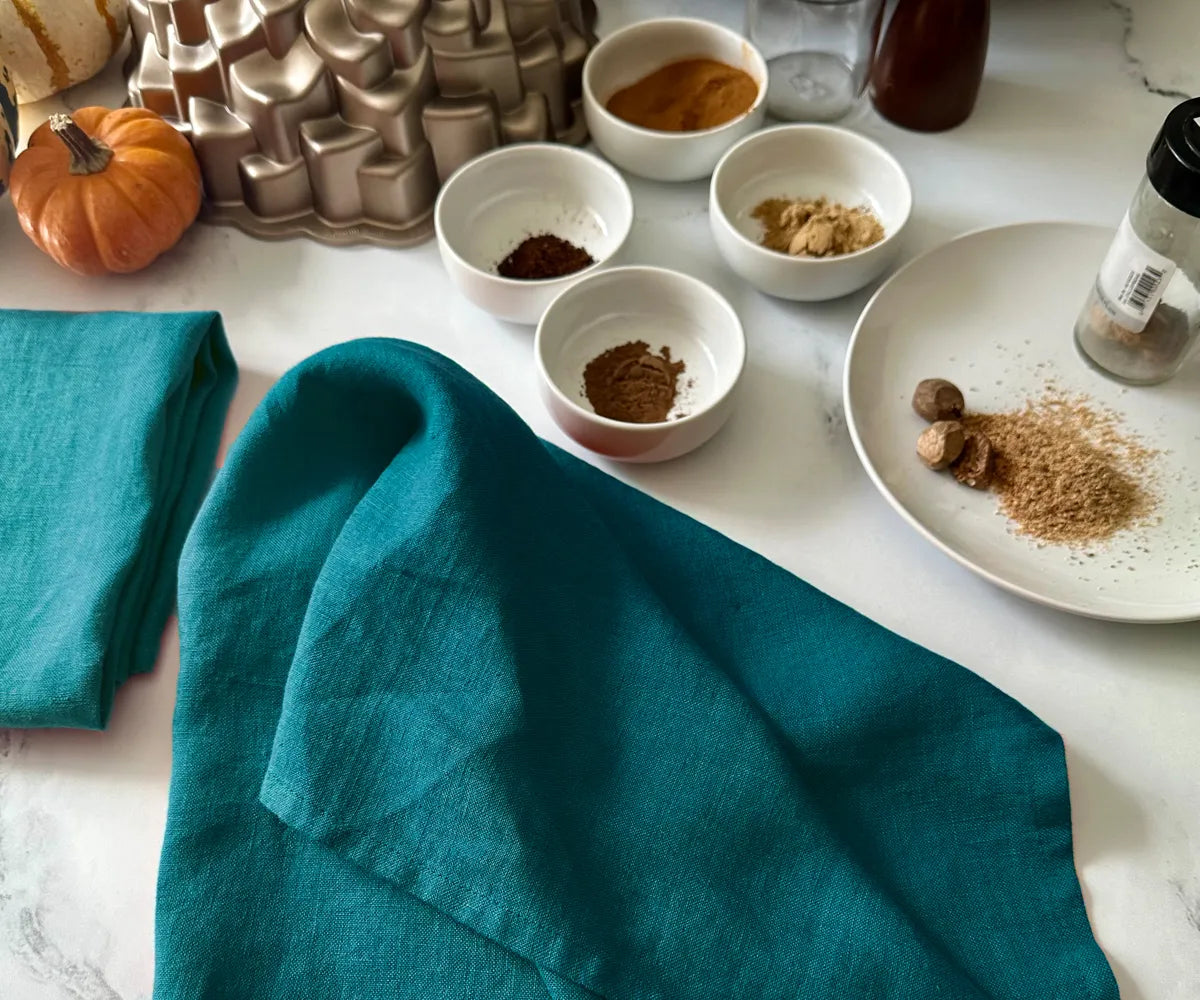What Makes Kitchen Towels Different from Other Towels?
Kitchen towels are not like bath or hand towels. Here’s why:

Exposed to More Contaminants
-
Kitchen towels come into contact with food, grease, raw meat juices, and bacteria.
-
Bath towels mainly absorb water and body oils, making them less prone to heavy contamination.
Bacteria Accumulation
-
Studies show that kitchen towels carry foodborne pathogens like Salmonella & E. coli due to frequent handling.
-
They stay damp longer, creating the perfect environment for bacteria and mold to grow.
Material Differences
-
Kitchen towels are often made from cotton, linen, or microfiber for high absorbency and durability.
-
Bath towels are softer and designed for moisture absorption, not heavy-duty cleaning.
With all these differences, it’s clear why washing kitchen towels separately is a smart choice!
Also Read: Explore All Cotton and Linen’s Kitchen Towel Collection
Why Washing Kitchen Towels with Other Laundry is a Bad Idea
Mixing kitchen towels with clothes or bath towels can spread bacteria, odors, and grease. Here’s what you need to know:

Cross-Contamination
-
Bacteria from kitchen towels can transfer to clothing and bed linens, increasing the risk of illness.
-
Grease and food residue don’t always wash out completely, leaving stains and odors on other fabrics.
Bacterial Growth & Odors
-
Kitchen towels often stay damp for hours, leading to mold and mildew.
-
Washing them with other laundry can spread the musty smell to everything else.
Expert Insights
-
According to cleaning experts, kitchen towels should be washed every 1-2 days separately at high temperatures.
-
A study by the USDA found that kitchen towels harbor the most bacteria in the kitchen, making separate washing crucial.
How to Wash Kitchen Towels Properly (Expert-Backed Guide)
Follow these best practices for washing kitchen towels to keep them fresh and hygienic:
Wash Frequency
-
Wash kitchen towels every 1-2 days to prevent bacteria buildup.
-
Unlike bath towels (which can be washed after 3-4 uses), kitchen towels need more frequent cleaning.
Best Wash Temperature
-
Use hot water (at least 140°F/60°C) to kill bacteria and break down grease.
-
Avoid washing kitchen towels with delicate fabrics or synthetics that require lower temperatures.
Pre-Treatment for Stains
-
For tough stains, pre-soak in a mix of baking soda and vinegar before washing.
-
Oxygen bleach is a great alternative to harsh chemical bleach for deep cleaning.
Avoid Fabric Softeners
-
Fabric softeners reduce absorbency, making kitchen towels less effective.
-
Instead, use white vinegar in the rinse cycle to keep towels soft and fresh.
You May Also Like: The Ultimate Guide to Kitchen Towel Materials: From Absorbency to Durability
Why Washing Kitchen Towels Separately is Worth It
Keeping kitchen towels separate from your regular laundry has several benefits:

Better Hygiene
-
Prevents foodborne bacteria from contaminating clothing and bed linens.
-
Ensures that grease and stains don’t spread to other laundry.
Improved Cleaning Efficiency
-
Allows you to use stronger detergents and hot water without worrying about damaging delicate clothes.
-
Prevents greasy residue from affecting other fabrics.
Longer Towel Lifespan
-
Washing separately reduces lint buildup, keeping towels more absorbent.
-
Helps kitchen towels dry evenly, preventing mold and musty odors.
For durable, high-quality cotton and linen kitchen towels, check out All Cotton and Linen. They are made from natural, breathable fabrics, perfect for kitchen use!
Best Practices for Washing Kitchen Towels
Follow these simple steps for cleaning kitchen towels the right way:

Sorting & Pre-Treatment
-
Separate heavily soiled towels immediately.
-
Pre-treat stains with baking soda or an enzyme-based detergent.
Washing & Drying Techniques
-
Hot water + a strong detergent = the best combo for disinfecting towels.
-
Tumble dry on high heat to kill germs, or air-dry in direct sunlight.
Storage Tips
-
Always store kitchen towels completely dry to prevent mold.
-
Rotate fresh towels regularly to avoid excessive wear.
Common Myths About Washing Kitchen Towels
Let’s debunk some myths about washing kitchen towels with clothes:
Myth 1: Washing everything together saves time.
Reality: Kitchen towels carry bacteria and grease that can transfer to other laundry. Washing them separately ensures better hygiene.
Myth 2: Cold water is enough to clean towels.
Reality: Cold water doesn’t kill bacteria effectively. Washing at 140°F (60°C) removes germs and grease more efficiently.
Myth 3: Bleach is the only way to disinfect towels.
Reality: Natural options like vinegar, baking soda, and oxygen bleach work just as well without damaging fabrics.
By now, it’s clear that washing kitchen towels separately is the best way to maintain hygiene, prevent cross-contamination, and extend their lifespan.
-
Wash every 1-2 days in hot water.
-
Pre-treat stains and avoid fabric softeners.
-
Store towels completely dry to prevent odors.
If you’re looking for high-quality, eco-friendly linen and cotton kitchen towels, consider All Cotton and Linen. They are designed for absorbency, durability, and everyday use.
Ready to make the switch? Try these tips and see the difference in your laundry routine!



